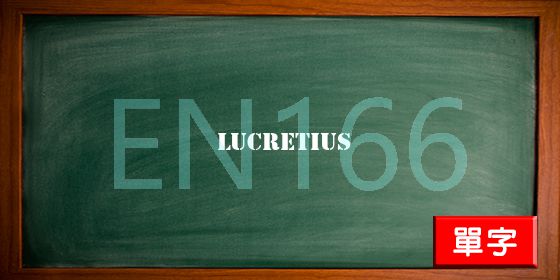lucretius n.1.盧克萊修〔男子名〕。2.Carus Lucret...
n. 1.盧克萊修〔男子名〕。 2.Carus Lucretius 盧克萊修 〔99?-55B.C. 羅馬哲學家、詩人〕。 “titus lucretius carus“ 中文翻譯: 克萊修“lucretti“ 中文翻譯: 盧克雷蒂“lucretiu“ 中文翻譯: 盧克雷丘“lucrezi“ 中文翻譯: 盧克雷齊“lucretianu“ 中文翻譯: 盧克雷蒂亞努“lucrezia“ 中文翻譯: 盧克雷齊亞; 盧克雷齊婭“lucretia“ 中文翻譯: n. 1.盧克麗霞〔女子名〕。 2.羅馬傳說中的貞婦,貞節的模范。 “lucrezia borgia“ 中文翻譯: 魯克蕾齊亞・波吉亞“lucrescu“ 中文翻譯: 盧克雷斯庫“lucrezio“ 中文翻譯: 盧克雷齊奧“lucrecio“ 中文翻譯: 盧克雷西奧
lucubrate |
|
His political philosophy is the product of resisting against the history of philosophy . it lays out an orphan line between lucretius , hume , spinoza , nietzsche , and bergson . by the critique of negativity , the cultivation of joy , the hatred of interiority , the faith in the exteriority of forces and relations , the denunciation of power 他的政治哲學是他與哲學史抗爭的產物,展示了他在貫穿盧克萊修、休謨、斯賓諾莎和尼采哲學的傳統中辨認出來的“思想孤兒線” ,即對否定性的拒斥、對力量和關系之外在性的信仰、對內在性的仇視、以及對快樂的頌揚。 |
|
As lucretius put it , “ what is food to one man may be fierce to others 正如羅切斯所說: “對于一個人可能是美食的東西,對于其他人可能是毒藥。 ” |

